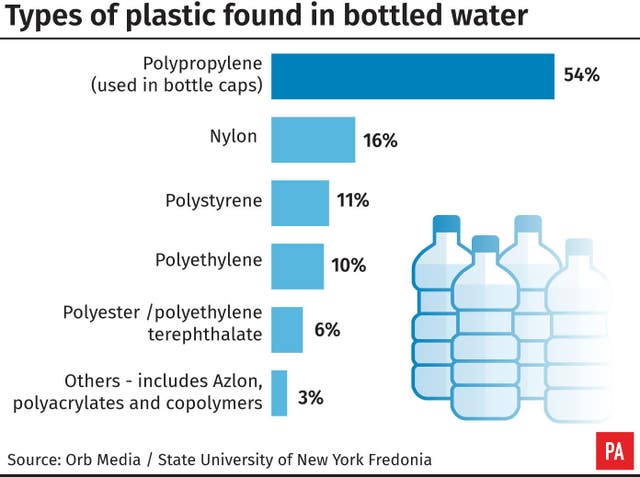Microplastics have been found in samples of bottled water analysed from around the world as part of a major new study.
The microscopic plastic particles, which come from sources including cosmetics, clothing and industrial processes, were detected in almost all of the bottles of water tested at State University of New York in Fredonia, using methods developed by researchers at the University of East Anglia (UEA).
Thought to be the largest study of its kind, scientists examined more than 250 bottles of water from 11 different brands from around the world and found “almost all were contaminated to some degree”.

Dr Andrew Mayes, part of the UEA team who developed the techniques used, said: “We are becoming increasingly aware of microplastics in the environment and their potentially harmful effects, but their prevalence in other areas has been much less studied.
“They have been reported in tap water, beer and many other foods, but I think that people will be surprised that almost all bottled water appears to be contaminated too.”
Dr Mayes and his team at UEA’s School of Chemistry pioneered a new method of detecting the tiny bits of plastic that can be ingested and accumulate in the body.
He said that conventional methods would have been hugely time consuming and prohibitively expensive, although the new technique uses dye to rapidly screen for the particles.
The study is published in the journal Scientific Reports and was reported by BBC News.
